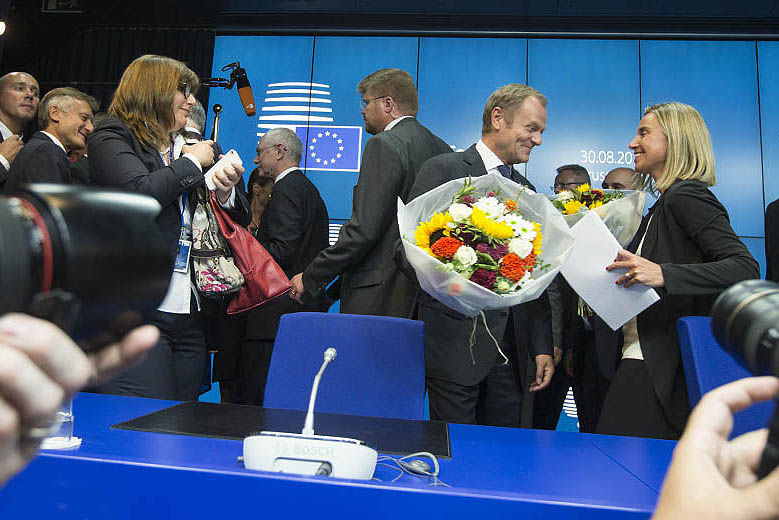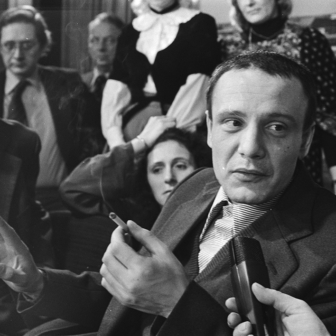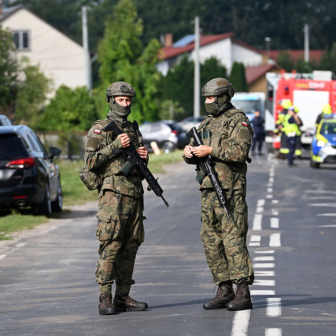Something about Jean-Claude Juncker’s speech to a packed media room was reminiscent of a freshly elected leader of the Australian Labor Party announcing the new cabinet line-up. Speaking loudly to be heard above the sound of rapid-fire camera shutters, the new top dog of the European Union executive had a single message to hammer home: he was the one in charge.
Juncker, who for eighteen years was prime minister of a tax haven called Luxembourg, spent over half an hour riffing on how he had given up his summer holidays to put together a team that reflected his vision for the European Union, and how everyone he had chosen was on the same page. It would be his name on the door (la Commission Juncker); he would be the one calling the shots.
In Australia, that illusion of independence usually lasts only until it becomes clear that the cabinet was a factional stitch-up. Backs have been scratched, large stakeholders appeased and a ministry set aside for Joe Ludwig. What’s more, just because the leader is clobbering reporters with the word “team” doesn’t mean everyone will be a team player – those with the support of powerbrokers know they are safe almost no matter what they do.
The European Union is not all that different, although it has the added complication of having twenty-eight factions in play: the twenty-eight national governments that make up the Union. Each gives the incoming president the name of the person it wants to send to the College of Commissioners (which is what the EU executive calls its cabinet – here, the word “cabinet” means something else); the national governments then demand a portfolio in keeping with their political priorities and their (perceived) status. This process gives the president no room to move in the selection of cabinet members and effectively ties his hands in the allocation of portfolios.
So it was that when the British government put forward its commissioner, Jonathan Hill (for you: Lord Hill of Oareford), it expressed the hope that he would end up with a “top economic portfolio.” By most measures he was an inappropriate choice: while other EU countries were appointing senior politicians with strong public profiles, Lord Hill was relatively unknown, was initially reluctant to move to Brussels and had worked as a lobbyist – something that won’t go down well with the European parliamentary committee vetting his candidacy this week. (The process has been dubbed “There will be blood” by local journalists.) Yet Juncker, bending over backwards not to antagonise Britain, wasted no time in handing Hill the portfolio of Financial Stability, Financial Services and Capital Markets. In short, he will be commissioner for the City of London.
It wasn’t the only controversial decision the factional bullying obliged Juncker to make. The French, for example, ended up with the portfolio they wanted, not the one they deserved, with former finance minister Pierre Moscovici taking over economic and financial affairs. It was a courageous appointment: France is a country that tends to ignore the EU austerity directives that Moscovici will now be required to enforce.
To this extent, it was business as usual. Europe’s factional bovver boys are still flexing their muscles as they attempt to impose their priorities on the EU executive. Yet in a few subtle ways the power dynamics are changing, and the process of cabinet appointments reflects this new landscape.
The main difference is that while Juncker may be the ultimate political insider, he will be the first Commission president in history who can claim an electoral mandate. He was appointed not by a backroom deal involving EU national leaders, but because he was the candidate of the political formation that got the most votes at the recent European parliamentary elections. That’s a big deal in the Europe Union, where political legitimacy is so scarce that those who have it can afford to throw their weight around.
More importantly, the twenty-eight members of the European Union appear to be changing their approach. They are no longer twenty-eight ping-pong balls bouncing around in a Hobbesian world of self-interest; they are all being pulled around by broader political realities. And there is no reality more real than a resurgent Russia getting physical with the European Union’s closest neighbours.
Here is how things unfolded. In 2007, conscious that the European Union was attracting bad press for being a distant, unrepresentative and unaccountable level of government, leaders signed off on a set of institutional reforms known as the Treaty of Lisbon. One of these reforms required member states to take into account the results of the elections for the European Parliament when appointing the head of the European Union’s influential executive, the European Commission.
It may not sound like much, but the appointment of Juncker was a break with the past. Before, Commission presidents had been chosen by what were then the twenty-seven leaders of the EU member states, something that curtailed the office’s political independence. And while Juncker was not directly elected to the post of Commission president, his strong showing in the elections made him the only choice and gave him the political authority to carve out a level of autonomy.
Because this is Europe, though, the winner doesn’t take all and power is carefully distributed. If the centre-right had claimed the presidency of the Commission then the centre-left would be granted the second-most prestigious role: the direction of the EU foreign affairs department (the official title is High Representative of the European Union for Foreign Affairs and Security Policy).
It soon became clear that the job would go to an Italian, in no small part because Italian prime minister Matteo Renzi’s centre-left party had emerged triumphant from the European parliamentary elections in May while, in the rest of the European Union, the left had received a drubbing. The Italian centre-left delegation to parliament was the largest of all EU members and Renzi’s Democratic Party expected to be rewarded.
The Italians had chosen their candidate for the High Rep gig: foreign minister Federica Mogherini, a forty-one-year-old Democratic Party apparatchik who had the support of both Renzi and the party machine. Renzi strode into the European Council (the European Union’s super-senate, representing the twenty-eight national governments) before the summer break assuming it was a done deal; he emerged flustered once it became clear he was facing a revolt.
The reason for the angst was the foreign policy tradition Mogherini represented, as well as Mogherini herself. While all EU members were caught unprepared by Russia’s invasion of Crimea in February, the countries with deeper commercial and investment links with Russia were particularly torn. France, Austria and Germany had all invested heavily in Russia (France had lucrative military hardware contracts in play), but no EU country was quite as exposed as Italy. Its state-controlled energy company ENI had a stake in a key piece of Russian gas infrastructure, and Russia was a key market for Italian bank Unicredit.
Like her predecessors at the Palazzo della Farnesina, Italy’s foreign ministry, Mogherini knew which side Italy’s bread was buttered on. Her approach to the crisis in Ukraine was, her critics argued, toned down by considerations that had little to do with the rights and wrongs of Russia’s invasion. During her now infamous trip to Russia at the height of the crisis, Mogherini ruled out a “military solution” and called for the respect of Russian minorities in Ukraine – comments that raised questions about Italy’s resolve in opposing Russian aggression.
Eastern European members of the European Union, in particular Poland and the three Baltic states, vowed to scuttle Mogherini’s candidacy. It was an unprecedented challenge to the appointment system and one revealing deep-seated foreign policy differences between the founding EU members in Western Europe and the relatively new members from the east (most of whom joined in 2004). The eastern EU countries had experienced life on the wrong side of the Iron Curtain and were terrified it could happen again; and the Baltic states had Russian-speaking minorities of their own, which made the Ukrainian crisis all the more worrying.
But Renzi would not back down. EU members used the European summer to regroup, lobby each other and find a face-saving way out of what had become a very public spat. At the time, one Italian foreign policy analyst in Brussels told me that the problem in Italy was that the issue had become one of “national pride.” “No one is actually asking whether Mogherini is up to the job,” she said. “Yet by outlining a policy towards Russia which was at odds with that of the EU, she undermined Europe’s position.”
But the Italians suspected – correctly, as it turned out – that the opposition to Mogherini was part of an ambit claim on the part of the eastern Europeans. Centre-left members of the European Parliament I met around parliament would pull their bottom eyelid down with their index finger – a gesture meaning furbizia, or cunning. “Italy’s foreign policy on this has not changed one bit over the years,” one of them told me. “If the eastern Europeans have an axe to grind with Russia, this has nothing to do with Mogherini.”
The Italians eventually won the day. Yet the appointment of Mogherini turned into much more than a Labor Party–style power-sharing brawl. It was a fight for the soul of something that most observers argue does not even exist: the European Union’s foreign policy.
Marc Pierini is a former EU career diplomat and a visiting scholar at Carnegie Europe, a Brussels think-tank. He says that while the bargaining over Commission jobs is nothing new, the fight for the job of High Representative is startling because the job itself is not a centre of political power.
“Big member states are not any closer than five years ago to letting EU institutions direct the [foreign policy] game,” Pierini says. “Do you think French foreign minister Laurent Fabius or German foreign minister Frank-Walter Steinmeier will take orders from Mogherini? No, they won’t. And that reflects the current political balance between the big capitals.”
In short, the job is a poisoned chalice. If there is one prerogative of the sovereign state that EU members do not want to relinquish, that’s foreign policy. “The job [of High Representative] is an empty shell,” former Italian foreign minister Gianfranco Fini told me over the summer. “The EU has no foreign policy. If you look at the current situation in Ukraine and the Middle East, the EU’s position is the last thing people care about. This job does not really matter.”
In terms of prestige, though, heading up the European Union’s diplomacy can’t be beaten, which is why the European institutions had to devise the mother of all compromises to overcome the impasse. Eastern Europe got the strong voice it wanted with the appointment of Polish prime minister Donald Tusk to the presidency of the European Council, a role with real political power. In return, Mogherini’s appointment was given the green light – although Lithuania, by far the strongest anti-Russian voice in the Council, abstained from the vote.
That anyone would want to ponder the horse-trading that produced this outcome comes as a complete surprise to Elmar Brok, the stern conservative German chairman of the European Parliament’s influential foreign affairs committee. “It is a fact of life,” Brok told me. “Where is the problem? At the end of the day we find a solution together. In every country, in every city in Europe, there are different opinions. We don’t all think the same thing. But we come together, despite the differences.”
Meanwhile, on the other side of the building, Italian MEPs from the anti-establishment Five Star Movement argue that Renzi’s pursuit of the foreign affairs portfolio was a strategic mistake. Fabio Massimo Castaldo, the articulate twenty-nine-year-old leader of Five Star’s delegation in the European Parliament, says Italy should have pursued the home affairs portfolio, which is responsible for Europe’s admittedly inadequate response to the growing number of asylum seekers arriving off the southern coasts of Italy.
“Home affairs would have enabled us to develop a stronger policy on immigration – that is the number one problem that southern European states have to deal with,” Castaldo said. “Or what about the energy portfolio, claimed by Germany? This area is a real challenge for Europe over the next fifteen to twenty years.”
Even with his hands tied, incoming Commission president Juncker has demonstrated greater political independence in choosing his cabinet line-up than would have been imaginable for his predecessor, José Manuel Barroso. Realising that an executive of twenty-eight was unmanageable, Juncker developed an inner-cabinet of seven, which will be able to override the decision of junior commissioners. This means that Moscovici will be kept in line by not one but two senior commissioners from the fiscally responsible countries of Holland and Finland. Paris would not be happy.
It is a streamlined cabinet system and all new members of the team received a “mission letter” from their boss, telling them what he expected. Building up foreign affairs credibility appears to be high on Juncker’s to-do list and Mogherini has agreed to work from within the cabinet. (While her predecessor, Catherine Ashton, was a commissioner in theory, she actually worked at arm’s length from the executive.)
The challenge for Juncker will be to ensure all members of his cabinet leave their passports at the door and work towards his undeclared goal: that of creating an EU government truly independent of the factional godfathers who brought it to life. The European Union’s institutional evolution is now in full swing. It will not be painless. •




